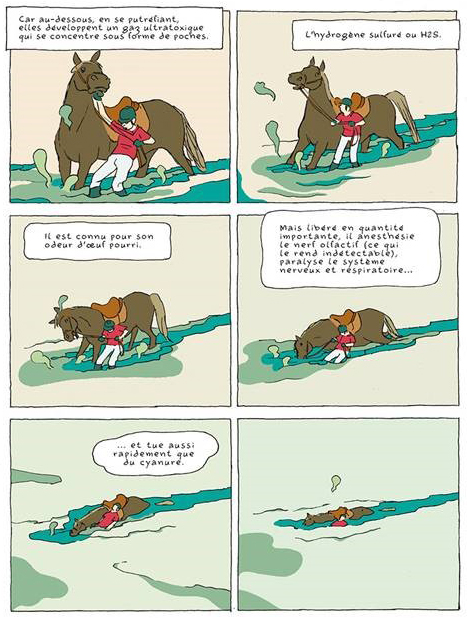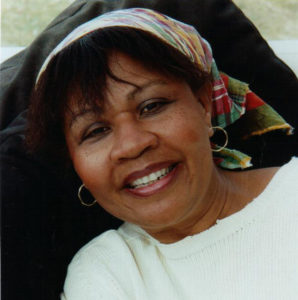We are thrilled to announce the following ASLE grant recipients for 2020. Three Translation Grants and two Subvention Grants were awarded to these worthy projects.
Funding for ASLE grants come, in large part, from members and supporters like you. Donate today to support innovative scholarship and research.
Translation Grants
The Elephant Dance
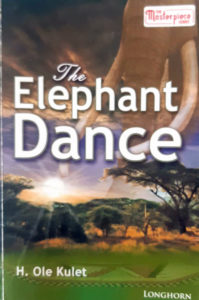 Andrew Wisindi’s project involves the translation of a novel, The Elephant Dance, a prose fiction written by Henry ole Kulet from Kenya, published in English by Longhorn Publishers (Kenya) in 2016. The project will translate the book into Swahili.
Andrew Wisindi’s project involves the translation of a novel, The Elephant Dance, a prose fiction written by Henry ole Kulet from Kenya, published in English by Longhorn Publishers (Kenya) in 2016. The project will translate the book into Swahili.
The Elephant Dance, set within the scenic savannah land with its rich flora and fauna, illuminates the crisis of endangered wildlife at the mercy of invasive and destructive human greed. The text provides a strong narrative on the perils of environmental degradation.
A translation of the book into the Swahili language will be of immense benefit in various ways. Firstly, Swahili is one of the most widely used languages, with over 30 million speakers in East and Central Africa. Secondly, the thematic issues resonate well not only within Kenya but also the wider East and Central Africa and beyond. Thirdly, this will be an essential scholarly novel for use in Swahili courses in higher 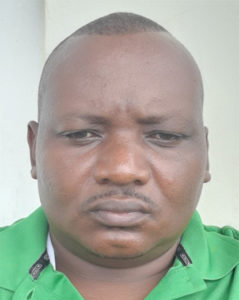 institutions of learning for generations to come; as the author notes in his dedication that the novel is for: wildlife conservationists and the youth of the nation, in whose hands the future of the endangered wildlife rests.
institutions of learning for generations to come; as the author notes in his dedication that the novel is for: wildlife conservationists and the youth of the nation, in whose hands the future of the endangered wildlife rests.
Andrew Wisindi is a postgraduate student from Pwani University, Kenya. He holds a Bachelor of Education in English and Literature and a Masters in Literature. He is passionate about ecological studies and the role of literature in addressing ecological issues, including but not limited to human-wildlife conflict and climate change.
Ecocriticism and Italy
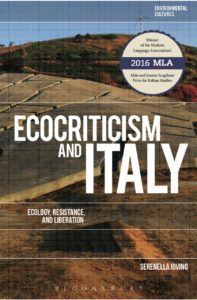 Raul Ciannella and Maria Antònia Martí Escayol will undertake the translation into Spanish of Serenella Iovino’s Ecocriticism and Italy, an outstanding ecocritical volume focused on a variety of Italian landscapes, which the author treats as texts, extended bodies conformed by matter and discourse, defined as storied matter. This translation would facilitate its diffusion and distribution in both Spain and Latin America, allowing the circulation of an ecocritical perspective in these regions, and especially in Spain where it’s still considered a minority and peripheral area of criticism.
Raul Ciannella and Maria Antònia Martí Escayol will undertake the translation into Spanish of Serenella Iovino’s Ecocriticism and Italy, an outstanding ecocritical volume focused on a variety of Italian landscapes, which the author treats as texts, extended bodies conformed by matter and discourse, defined as storied matter. This translation would facilitate its diffusion and distribution in both Spain and Latin America, allowing the circulation of an ecocritical perspective in these regions, and especially in Spain where it’s still considered a minority and peripheral area of criticism.
A Spanish translation of this book will be a tremendous addition to the Environmental Humanities debate in Europe and in all Hispanic countries. The existence of a Spanish translation may also encourage an Italian translation as, paradoxically, there is not currently an Italian version of this volume.
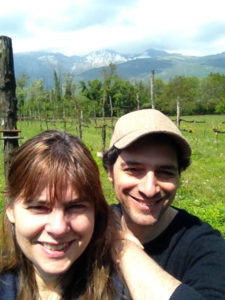 Maria Antònia Martí Escayol, Ph.D., is associate professor at the Department of Contemporary and Early Modern History at the Universitat Autònoma de Barcelona. Her research interests include: Environmental humanities; Ecocriticism; Reconstruction of Extreme Meteorological Episodes through memoirs and dietaries; Oriental Asian history. Among his translations: Carolyn Merchant’s La muerte de la naturaleza, Comares Editorial, 2020 (together with Raul Ciannella).
Maria Antònia Martí Escayol, Ph.D., is associate professor at the Department of Contemporary and Early Modern History at the Universitat Autònoma de Barcelona. Her research interests include: Environmental humanities; Ecocriticism; Reconstruction of Extreme Meteorological Episodes through memoirs and dietaries; Oriental Asian history. Among his translations: Carolyn Merchant’s La muerte de la naturaleza, Comares Editorial, 2020 (together with Raul Ciannella).
Raul Ciannella has a doctorate in Literary Theory and Comparative Literature. Research interests include ecocriticism, theories of authorship, speculative and fantastic fiction. Among his translations: Serenella Iovino’s “Pensar lo impensable. Las humanidades ambientales como discurso de liberación” in Ecología política, n57, June 2019; Carolyn Merchant’s La muerte de la naturaleza, Comares Editorial, 2020 (together with Maria Antònia Martí Escayol).
Algues vertes, l’histoire interdite
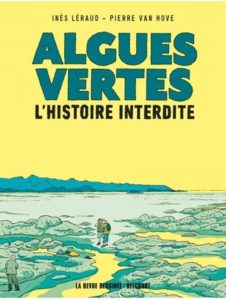
Margaret Morrison will translate Algues vertes, l’histoire interdite by Inès LÉRAUD, from French into English. This graphic documentary book was published by Delcourt in 2019, and was in the official selection for the Angoulême festival, and for the France Info de la bande dessinée d’actualité et de reportage 2020 prize. It is an investigation of the dangerous algae contamination of Breton beaches and lays bare the vested interests which have led to the cover up of a huge environmental scandal. “Since the late 1980s, at least 40 animals and 3 men have ventured on to a Breton beach, walked on the foreshore, and died. The identity of the serial killer is an open secret.” At 160 pages, the reportage is detailed and uncovers a historic problem going back at least 30 years which remains highly controversial.
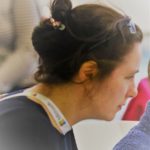 Margaret Morrison is a translator of French to English, with a background in literature (MA Cantab, MA Modern French Cultural Studies, Diploma in Translation), and a varied commercial career path. She is a member of the Association pour la promotion de la traduction littéraire, and translated Horizontal Collaboration, published in 2019 by Korero Press, by Navie and Carole Maurel.
Margaret Morrison is a translator of French to English, with a background in literature (MA Cantab, MA Modern French Cultural Studies, Diploma in Translation), and a varied commercial career path. She is a member of the Association pour la promotion de la traduction littéraire, and translated Horizontal Collaboration, published in 2019 by Korero Press, by Navie and Carole Maurel.
Subvention Grants
Ciénaga de Palagua
Paraisa Rinaldi will work with women from the area most affected by one of the oldest oil fields in Colombia, Ciénaga de Palagua, to co-produce a short film that represents the dynamic interplay of environmental memory, lived experiences and alternative visions for the future. In 1946, Texaco company installed the first oil well in Puerto Boyacá, a river-port town which would later become a focal point for paramilitary violence during Colombia’s decades-long armed conflict. Over the years, more wells and fields were opened and passed from one company to another, with every environmental liability easily covered up or left unresolved. Petroleum began to dominate the cultural and economic landscape. Despite local concerns, exploitation continues in this region with no compensation for the 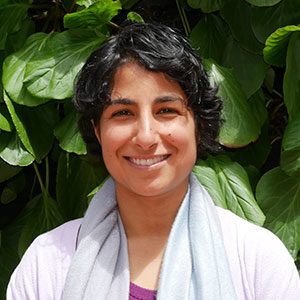 destruction of nature and livelihoods. This place-based creative engagement will be valuable for communities across the global South dealing with the scars of resource extraction.
destruction of nature and livelihoods. This place-based creative engagement will be valuable for communities across the global South dealing with the scars of resource extraction.
Parisa Nourani Rinaldi lives in Bogotá, Colombia, where she teaches Geography at Universidad del Externado, and pursues a PhD in Interdisciplinary Development Studies at Universidad de los Andes. She is interested in place-based research that combines science and emotion, particularly within extractive frontiers and waterscapes of the global South.
Searchable Sea Literature
Rich King’s project, Searchable Sea Literature, supported by the Maritime Studies Program of Williams College and Mystic Seaport, is an open access internet resource providing peer-reviewed biographies of North American Anglophone maritime authors, hundreds of individually searchable links to electronic texts of maritime prose by these writers, and a cross-searchable Google bookshelf of maritime literature. The site aims to serve a broad range of audiences, from students looking for reliable reference material to advanced scholars looking to quickly find full, searchable texts for analysis.
Update: three funded entries are now published; view the new entries on Toni Morrison, Sylvia Earle, and Dava Sobel in the “What’s New” box to the right on the home page: https://sites.williams.edu/searchablesealit/
This grant provides funding to support new reference entries on authors who have been underrepresented in blue ecocriticism and the Searchable Sea Literature site, notably female authors of the twentieth and twenty-first century, especially those that are Black, Indigenous, Asian, or Latinx. It has also been documented how the lack of female authorship in reference websites has influenced content and approach, so this grant provides honoraria for five female (or nonbinary) authors to write about five female authors, and additionally includes plans for female scholars to act as blind peer reviewers. As of this publication, four entries have been claimed, on: Toni Morrison, Phillis Wheatley, Sylvia Earle, and Jamaica Kincaid. Stay tuned for the new entries to appear on the site in 2021!
Since its inception, the website has always involved undergraduates in all phases of the production, and this summer intern Marija Miklavčič has been writing, researching, learning WordPress, and handling some of the correspondence and logistics of this grant.
 Richard King is a Visiting Associate Professor in Maritime Literature and History at the Sea Education Association (SEA) in Woods Hole and is the editor of Searchable Sea Literature.
Richard King is a Visiting Associate Professor in Maritime Literature and History at the Sea Education Association (SEA) in Woods Hole and is the editor of Searchable Sea Literature.
Marija Miklavčič, University of Rochester ’22, SEA ’20, is a History and English double-major and a Searchable Sea Literature research intern this summer.

